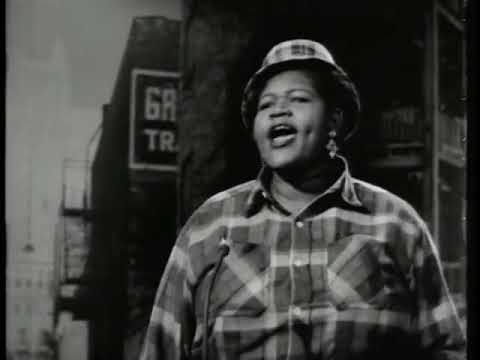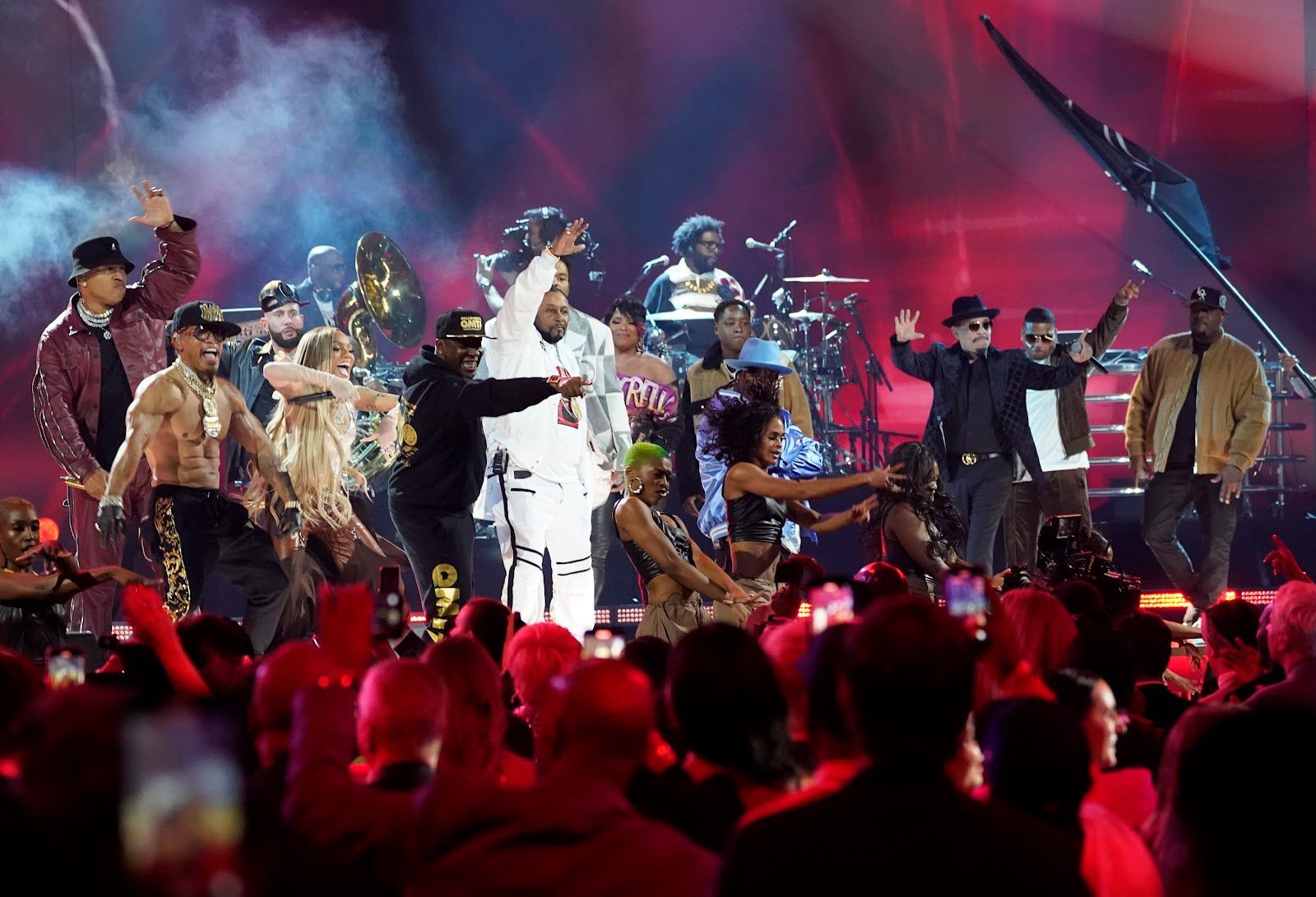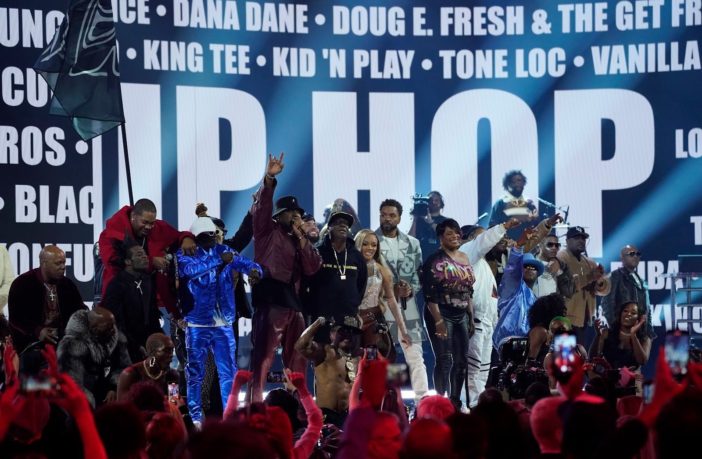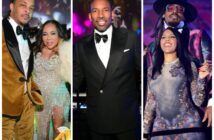Gen X folk, and maybe the younger members of the Baby Boomer crew, remember that when hip-hop was born it was attacked by er-body. Whitefolk en masse considered it trash, but so too did a lot of Blackfolk.
Many believed hip-hop would be a fad that would disappear from the music scene as quickly and mysteriously as it appeared. For years several Black R&B radio stations, Houston’s Majic 102.1 FM included, literally promoted themselves as stations free of “rap.” Now, you can’t turn on “Majic” without hearing hip-hop from sun up to sun down.
(L-R) Flavor Flav and Chuck D of Public Enemy perform onstage during A GRAMMY Salute to 50 Years of Hip-Hop at YouTube Theater on November 08, 2023 in Inglewood, California. (Photo by Frazer Harrison/Getty Images for The Recording Academy)
Some of y’all may recall there were entire movements in the hallowed halls of Congress, and even First Ladies and Second Ladies and candidates for all levels of public office leading campaigns to villainize and criminalize not only certain hip-hop songs and groups, but the entire genre.
Don’t miss out! Get top Black headlines in Houston/Texas/America in your inbox Monday-Saturday.
Yet, go shopping in the Galleria or looking for food at HEB, Kroger, Randalls, or Fiesta, and you’re liable to hear Luda over the intercom screaming, “Move, get out the way, get out the way, get out the way.” Why? Because for the past couple of decades, hip-hop has become the theme music for darn near every product advertised. And if it’s not hip-hop, it’s some other form of Black music performed by a Black artist.
 Cardi B, right, presents the award for best rap album to Kendrick Lamar for “Mr. Morale & The Big Steppers” at the 65th annual Grammy Awards on Sunday, Feb. 5, 2023, in Los Angeles. (AP Photo/Chris Pizzello)
Cardi B, right, presents the award for best rap album to Kendrick Lamar for “Mr. Morale & The Big Steppers” at the 65th annual Grammy Awards on Sunday, Feb. 5, 2023, in Los Angeles. (AP Photo/Chris Pizzello)
I’ve mentioned in other articles that my two youngest daughters have been in hip-hop dance groups and members of local dance studios for several years now. And they, with their Black selves, are the absolute minorities in the rooms. And when their studio goes to those big citywide and statewide competitions to see who’s the best hip-hop dancing crew, the dancers and their families are 90-some-odd percent Asian.
And as Killer Mike and so many others have pointed out, hip-hop wouldn’t be the global gazillion-dollar money-making behemoth it is without the untold dollars being spent on the music by suburban white kids. And it’s those white kids’ parents and grandparents who are running record labels and making bank off our music.
But the real killer thing is, this ain’t nothing new. Unfortunately, every form of our music has been hijacked and colonized; controlled by folk who neither look like us nor have our best interests in mind.
 Willie Mae ‘Big Mama’ Thornton singing her hit song ‘Hound Dog.’ Years later, that song catapulted Elvis Presley into superstardom. Source: screenshot
Willie Mae ‘Big Mama’ Thornton singing her hit song ‘Hound Dog.’ Years later, that song catapulted Elvis Presley into superstardom. Source: screenshot
Please excuse this rant. I know I’m not saying anything new or earth-shattering, or something you don’t already know… but since this year’s Black History Month theme is “African Americans and the Arts,” I kinda feel compelled to remind us of this ongoing exploitative setup that we’ve allowed to exist for far too long – our talent getting pimped for the profits of others while 95% of Black artists with a Top 10 record go bankrupt eventually.
If we really wanna make some history we cannot allow this situation to stand any longer.
 50 Years of Hip Hop Celebration Tribute performance at the 65th annual Grammy Awards on Sunday, Feb. 5, 2023, in Los Angeles. (AP Photo/Chris Pizzello)
50 Years of Hip Hop Celebration Tribute performance at the 65th annual Grammy Awards on Sunday, Feb. 5, 2023, in Los Angeles. (AP Photo/Chris Pizzello)
It’s gonna take courage, grit, brainpower, and ingenuity to organize and enact change. But hell, those qualities (plus mad talent) are the reasons everybody on the globe loves our rhythm. Still, they hate our blues but are cool with us singing the blues about having the wealth of our talent and creativity stolen. But we truly have everything we need inside of us to keep those profits from our genius in our own pockets, in our own backyards, in our own communities.
That’s the kinda history we need to be about making.
Support the Defender
Our pledge is to elevate solutions, share successes, and amplify the experiences of Black people. We cannot do it alone.



